EVENT
Event News
Talks on vehicular networking by Prof. Carlos Calafate
Outline
Talk One
- Date:
- March 5, 2015
11:00-12:00 - Place:
- Presentation Room (1904), National Institute of Informatics
Access - Title:
- Applications and services for Intelligent Transportation Systems
- Summary:
- This lecture presents the main contributions of GRC-UPV and INiT-UNIZAR researchers in terms of product innovation in the Intelligent Transportation Systems sector, describing new products in terms of both smart phone applications and crash detection systems.
Talk Two
- Date:
- March 9, 2015
13:30-15:30 - Place:
- Seminar Room 2 (1509), National Institute of Informatics
Access - Title:
- Towards more realistic simulation models for vehicular ad hoc networks
- Summary:
- This seminar attempts to provide an overview of the most relevant issues in Vehicular Networks Research, focusing on critical elements such as Mobility modeling, Wireless Communications modelling, and determining the key simulation parameters. The impact of modelling accuracy is discussed taking as reference a message dissemination protocol for VANET environments.
About the speaker
Prof. Carlos Calafate (UPV, Spain)
Carlos T. Calafate is an associate professor in the Department of Computer Engineering at the Technical University of Valencia (UPV) in Spain.
He graduated with honours in Electrical and Computer Engineering at the University of Oporto (Portugal) in 2001. He received his Ph.D. degree in Informatics from the Technical University of Valencia in 2006, where he has worked since 2002. His research interests include ad-hoc and vehicular networks, mobile applications, QoS, network protocols, video streaming, and network security. To date he has published more than 250 articles, 56 of them in journals including IEEE Transactions on Vehicular Technology, IEEE Transactions on Mobile Computing, IEEE/ACM Transactions on Networking, Elsevier Ad hoc Networks and IEEE Communications Magazine. He has participated in the TPC of more than 100 international conferences. Currently he is actively collaborating with researchers in France, UK, Sweden, Italy, Mexico, Japan and Portugal.

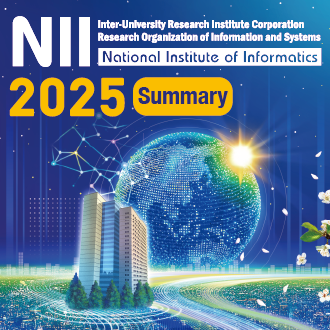 Summary of NII 2024
Summary of NII 2024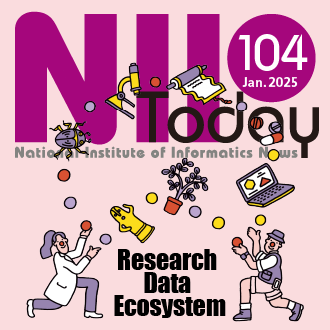 NII Today No.104(EN)
NII Today No.104(EN) NII Today No.103(EN)
NII Today No.103(EN)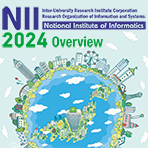 Overview of NII 2024
Overview of NII 2024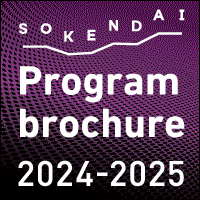 Guidance of Informatics Program, SOKENDAI 24-25
Guidance of Informatics Program, SOKENDAI 24-25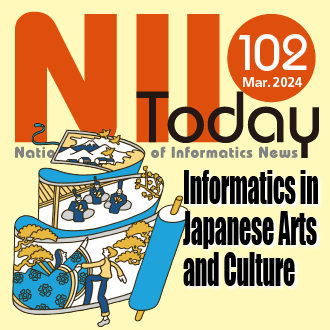 NII Today No.102(EN)
NII Today No.102(EN) SINETStream Use Case: Mobile Animal Laboratory [Bio-Innovation Research Center, Tokushima Univ.]
SINETStream Use Case: Mobile Animal Laboratory [Bio-Innovation Research Center, Tokushima Univ.] The National Institute of Information Basic Principles of Respect for LGBTQ
The National Institute of Information Basic Principles of Respect for LGBTQ DAAD
DAAD
